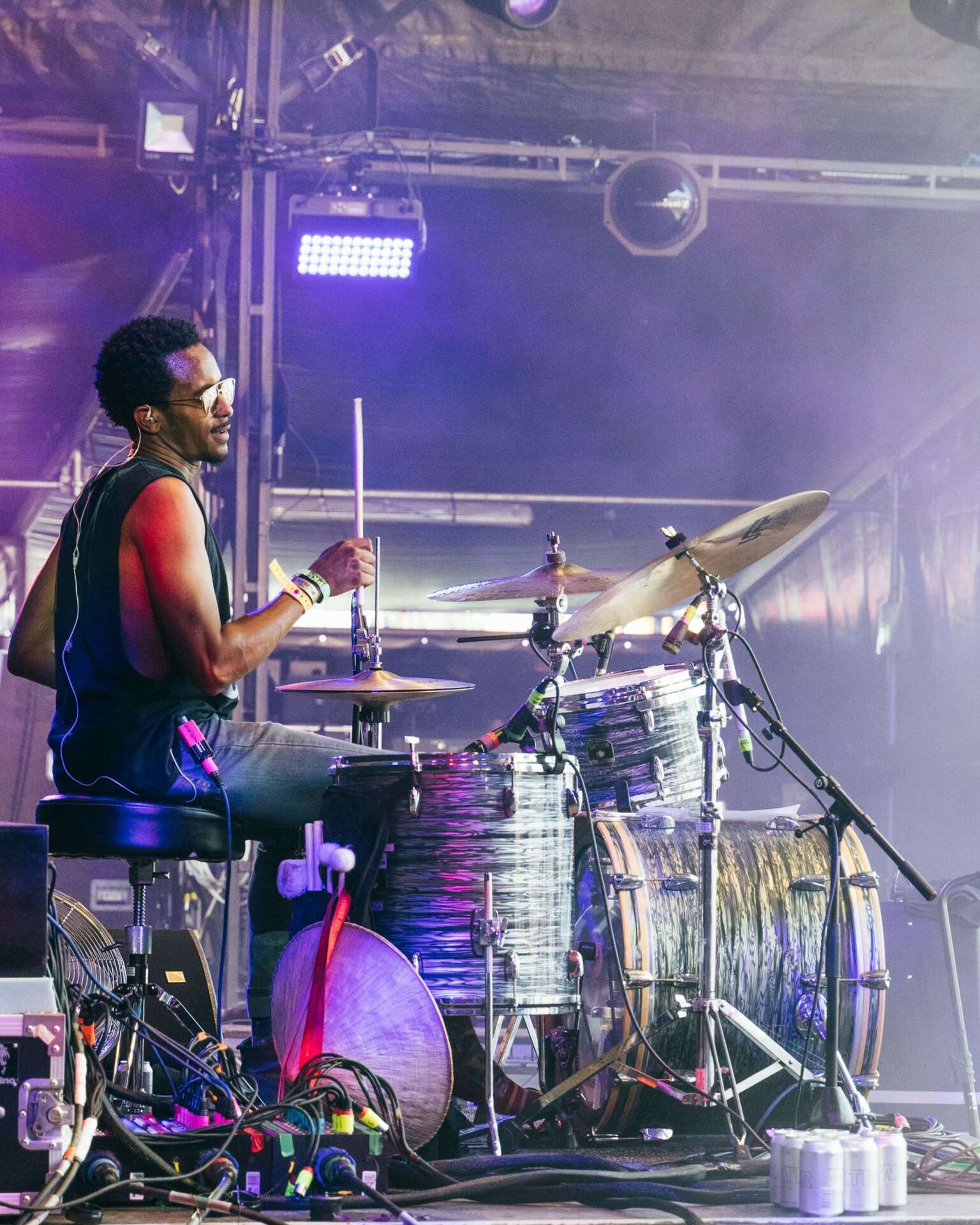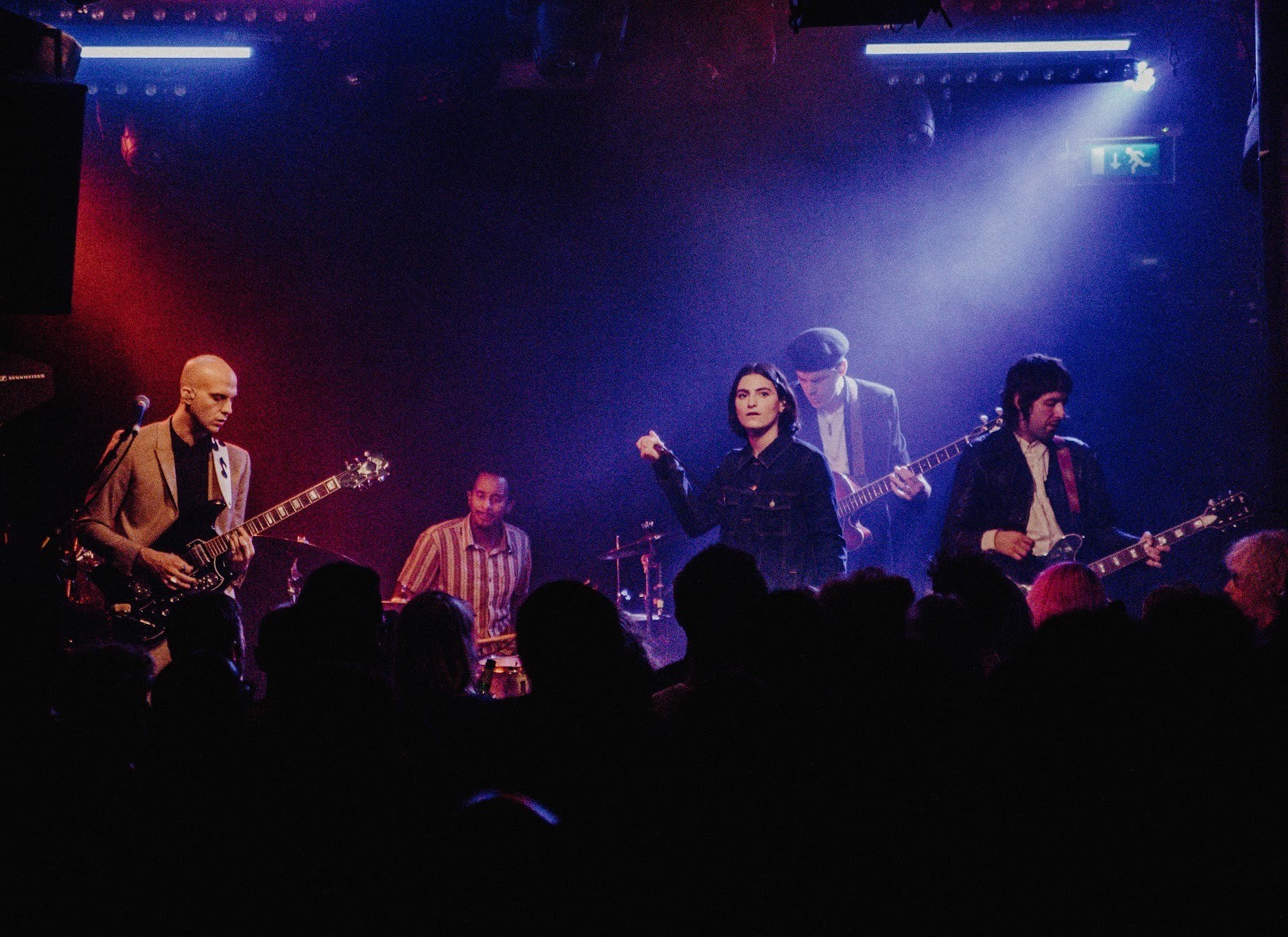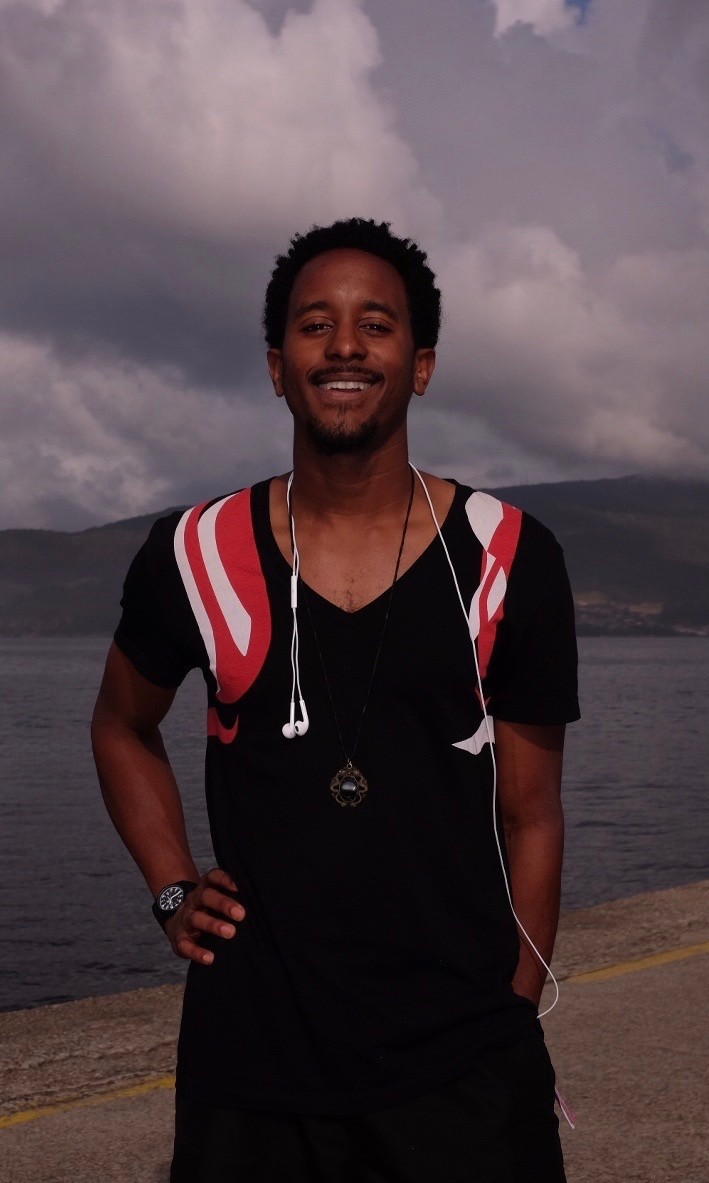We recently connected with Jordan Manley and have shared our conversation below.
Jordan, appreciate you joining us today. How did you learn to do what you do? Knowing what you know now, what could you have done to speed up your learning process? What skills do you think were most essential? What obstacles stood in the way of learning more?
I began playing drums in the early 2000s. I’ve been working professionally as a musician since 2008. I spent my early years playing in church. My uncle Antoine Paden was the musical director. He sparked my interest by challenging me with difficult projects. He was also the first person who exposed me to rock n roll, jazz, and other secular music. He would tell me who was cool. I would go home and listen to all their records, and that’s how I developed my vocabulary on my instrument.
I grew up playing in church, and (like most gospel musicians) I didn’t learn how to read music (at least not in my early years). I took my education into my own hands and taught myself how to read basic rhythm patterns. Funny enough, my first book was “Drums For Dummies”. The title is condescending, but the information was extremely helpful! I got my first teaching job in 2012. Thankfully I had taken time to teach myself how to read beforehand.
The most essential skills for a musician do not include reading, writing, and codifying language. I think it’s important to develop emotional intelligence first and foremost. Understand how music effects YOU; then learn how to pass that feeling onto your audience. There’s nothing worse than a musician playing music they don’t believe in (haha). Speaking of drummers specifically: There are a lot of essential skills to consider: Time keeping, rhythmic vocabulary, technical facility… but LISTENING is the most important skill.
I don’t believe I had many obstacles on my journey as a drummer. Or maybe the obstacles were there so I could “prove myself to be worthy”. My first inconvenience was purely physical. I would have really cool ideas in my brain, but it took my body years of training to perform those ideas. The second obstacle was financial. I came from a working-class military family. It was tough convincing my dad to drop $1200 on a drums (especially because I sounded really bad for a really long time). But once I showed improvement, he caved.
Eventually I went to college and started working as a drummer. Just like any profession, there are hurdles to overcome, but the process of becoming a drummer has never been a bummer. Any obstacle I encountered was just an opportunity to level up!



Awesome – so before we get into the rest of our questions, can you briefly introduce yourself to our readers.
I’ve been working as a drummer for most of my life. I wasn’t good at school, so dropped out of college and found work in my hometown Columbus GA. At first it was strictly gospel music. I played around town at various churches. Then I joined my first rock band — Stereomonster. This band provided me with a unique college-style fraternity (something I never got to experience in school). We lived together for years, toured the Southeast, and recorded three albums. I came of age in that band. That’s where I learned how to be a professional.
In 2014 I moved to Atlanta to advance my career. I didn’t have any prospects — just my drums and a few friends in the city. The first year I worked odd jobs to stay afloat. Eventually I settled into the Atlanta music scene. Just as I suspected, people call you to play drums once they see you can play drums. Free advice for young musicians: Every show could be an audition for your next gig!
In 2016 I recorded a lot of music with songwriters Randy Michael and Jonah Swilley. One of their affiliated artists was Mattiel Brown. When she signed her first record deal I was chosen to be her touring drummer. I traveled with that band for four years, and went a lot of places. I played most major cities in the USA, The UK, and Western Europe. I performed at a lot of festivals including SXSW, Austin City Limits, Glastonbury, Voodoo Fest, Primavera, and more. I also appeared on television shows like “Later…with Jools Holland” and “Last Call with Carson Daly”. I also got to open for a few legendary artists during that time. The coolest was Jack White (the mastermind behind the White Stripes).
Throughout my years with Mattiel’s band, I was always collaborating with Atlanta groups. I manned the drum chair for Lightning Orchestra, Rod Hamdallah, and The Common Ground Collective (to name a few).
I’ve also been holding jobs as a music teacher since 2012. I currently work at Meta Music Education in Sandy Springs. It’s a progressive music school that focuses more on brain development than musical proficiency. Many of the students and teachers are encouraged to learn multiple instruments. Working there has been a refreshing experience. I share the studio with some amazing colleagues like Travis Murphy, Chris Suarez, Alexandra Kustin, Christian Poole, and Gabe Lopez. All of which are incredibly talented teachers and musicians in their own right.
The corona virus pandemic has changed a lot of things in my life (if you can believe that). Tours dates were postponed, then cancelled. All that downtime forced me to explore new ventures. I spent two years buying studio equipment and learning how to record myself from home. Nowadays I’m able to record quality drums for clients without them spending thousands of dollars in traditional studios. Most musicians don’t have huge budgets, so my service has helped many musicians get affordable REAL drums for their songs.
In the meantime, I still take the occasional job touring and doing session work. Most recently I toured the east coast with country artist Honey Harper. I’m also featured on the debut album by the Atlanta brit-pop band “Massive 45”.
I’ve been creating libraries of drum samples for music producers. Beat-makers are always searching for unique drum sounds, so I made my own recordings available for public consumption. My drum samples are available on my website JordanManleyMusic.com.



In your view, what can society to do to best support artists, creatives and a thriving creative ecosystem?
Society can best support artists by paying artists. This is a free market and I don’t believe every artist should be coddled just because they can play guitar. That would be silly. However I believe there’s a widespread understanding that artists deserve the crumbs. Doesn’t matter if it’s a wedding, a festival, or a corporate party… artists and musicians are usually the last people included in the budget. I think this predatory business practice is ingrained in American capitalism. The longer I live the more stories I hear about artists and musicians getting raw deals. It’s been like this forever.
I enjoy the struggles of being an artist. It’s a fun game to navigate. I believe every person has creative potential. Every person has the right to be an artist. Unfortunately the risks involved can lead to some devestating outcomes. I think we (as a country) could benefit by (1) providing more state-funded spaces for creative expression and (2) providing healthcare and financial literacy for people who make art.
What do you find most rewarding about being a creative?
The most rewarding aspect of being an artist is affecting lives. I’m not a songwriter. I don’t write poetry. I engineer sounds to move bodies. That’s always been my favorite part about being a drummer.
The study of rhythm goes hand-in-hand with movement. I’m honored to be a part of that legacy, even if it’s on a small scale.
Contact Info:
- Website: JordanManleyMusic.com
- Instagram: helladrumz
- Facebook: Jordan Manley
- Youtube: Jordan Manley drums
Image Credits
photos by William Hollifield, Wilem Olenski, and Mattiel Brown


